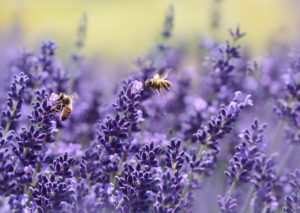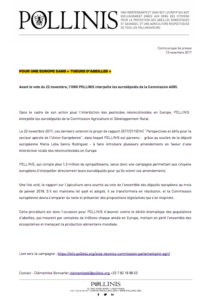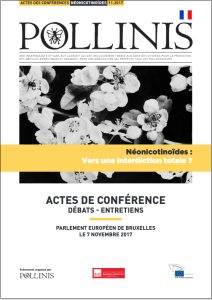Pesticides
AMENDEMENTS DÉPOSÉS AUPRÈS DU PARLEMENT EUROPÉEN SUR L’AVENIR DU SECTEUR APICOLE
POLLINIS est parvenue à faire intégrer au sein du projet de rapport « Perspectives et défis pour le secteur apicole de l'Union européenne » 13 amendements #StopNéonics. Cette action de contre-lobbying permet de rappeler la volonté des 1,2 million de citoyens qui ont signé la pétition de POLLINIS pour une interdiction totale des tueurs d'abeilles.
CATÉGORIES : Dépêches
Date : 18 octobre 2017 
- Amendment 176 : Maria Lidia Senra Rodríguez Motion for a resolution Recital AF a (new) Motion for a resolution Amendment AFa. Whereas the Intergovernmental Science-Policy Panel on Biodiversity and Ecosystem Services (IPBES) considers 40% of all pollinating species globally to be under threat of extinction and concludes that wild pollinators have declined in both occurrence and diversity, and in abundance for certain species, at local and regional scales in North West Europe;
- Amendment 187 : Maria Lidia Senra Rodríguez Motion for a resolution Whereas International Union for Conservation of Nature (IUCN) national Red List assessments, where available, show that often more than 40% of bee species maybe threatened with extinction;
- Amendment 188 : Whereas International Union for Conservation of Nature (IUCN) Red List assessments show that in Europe 9% of bee and butterfly species are threatened AM\1133589EN.docx 83/170 PE610.538v01-00 EN and populations are declining for 37% (excluding data deficient species);
- Amendment 191 : Whereas the long-term health and sustainability of the apiculture sector in Europe rests on ensuring the long-term health and sustainability of local honey bee ecotypes, given their diversity and adaptation to local environments;
- Amendment 194 : Whereas neonicotinoid-based pesticides are particularly responsible for the worrying decline in bee populations throughout Europe, as demonstrated in numerous international studies;
- Amendment 195 : Amendment AFf. Whereas France has put in place a total ban on the use of all neonicotinoidbased pesticides from 2018, notably in order to protect pollinators;
- Amendment 350 : Underlines the extraordinary genetic heritage, diversity and capacity for adaptation of local, endemic honeybee populations, each tailored over generations to the particularities of their local environment, and insists upon the need to protect this vital genetic patrimony;
- Amendment 365 : Underlines the importance of genetic diversity in honeybee sub-species and the need to protect local ecotypes in order to facilitate resistance to invasive species and diseases and thus ensure the long-term sustainability of European honeybee populations;
- Amendment 376 : Motion for a resolution Amendment 14c. Considers that the various ecotypes of the native honey bee of northern and western Europe, adapted to their different local environments over generations and over millennia, constitute an invaluable genetic resource indispensable for food production for present and future generations which must be safeguarded as a matter of priority;
- Amendment 386 : Insists that all efforts at EU, Member State, regional and local level to support the apiculture sector necessarily require parallel efforts to protect local honey bee populations;
- Amendment 389 : Recalls the legal duty of Member States within the original natural range of apis melifera melifera to preserve or establish protection areas for their native honey bees, in accordance with the 1992 UN Convention on Biological Diversity;
- Amendment 392 : Calls on the European Commission and Member States to put in place measures to increase legal protection and financial support for local honey bee ecotypes and populations throughout the European Union, including by way of legally protected locally endemic honeybee conservation areas;
- Amendment 394 : Calls on the European Commission to propose legislation banning the production, sale and use of all neonicotinoid-based pesticides throughout the European Union without derogation and as a matter of priority in order to protect honey bee populations;

